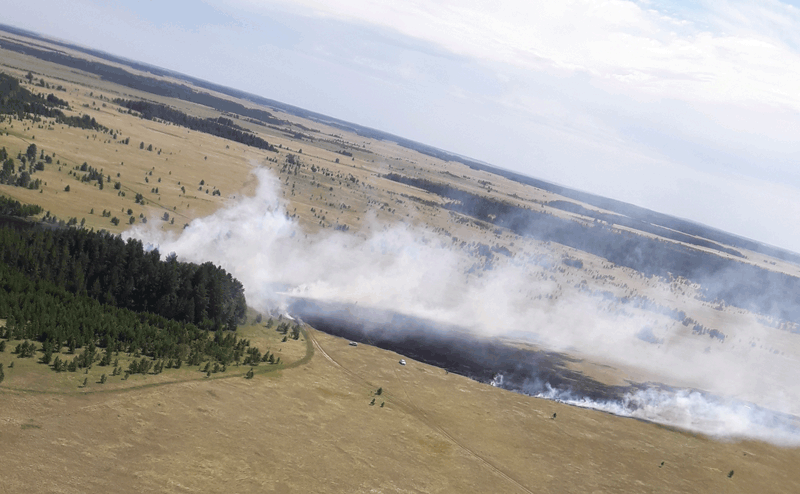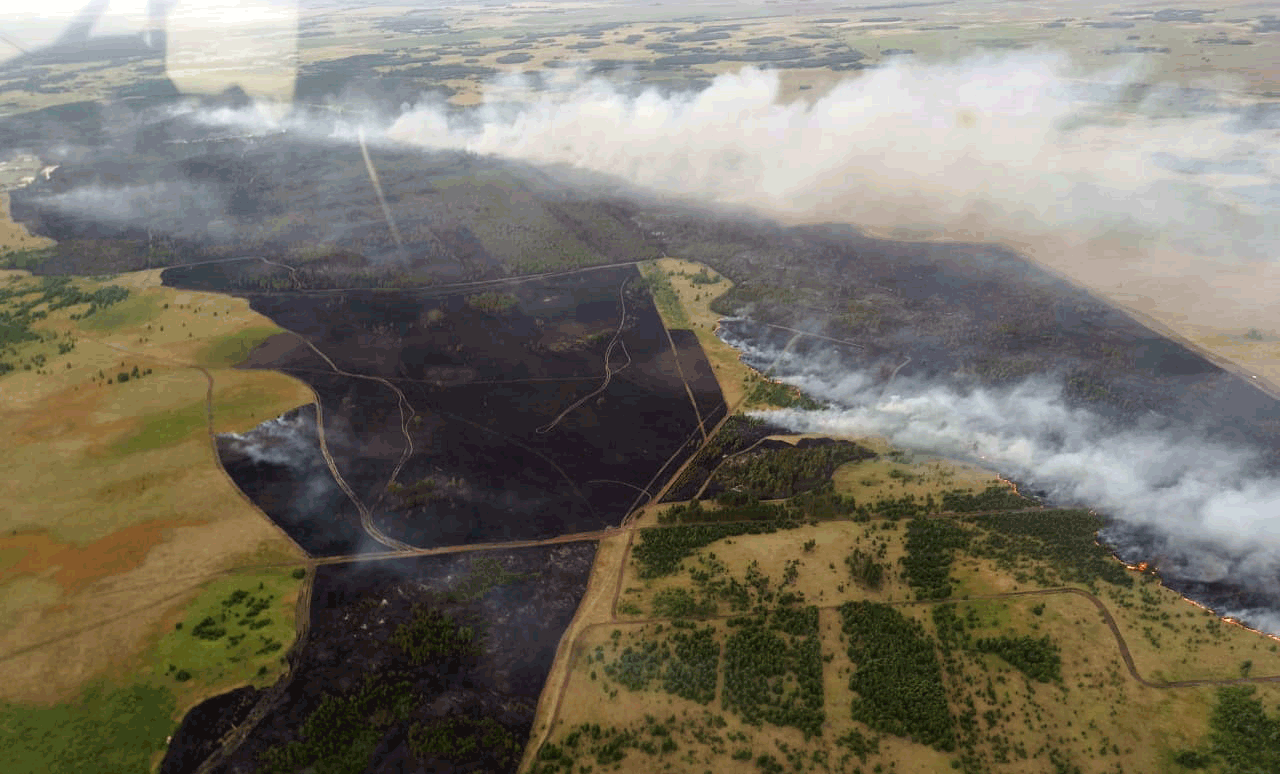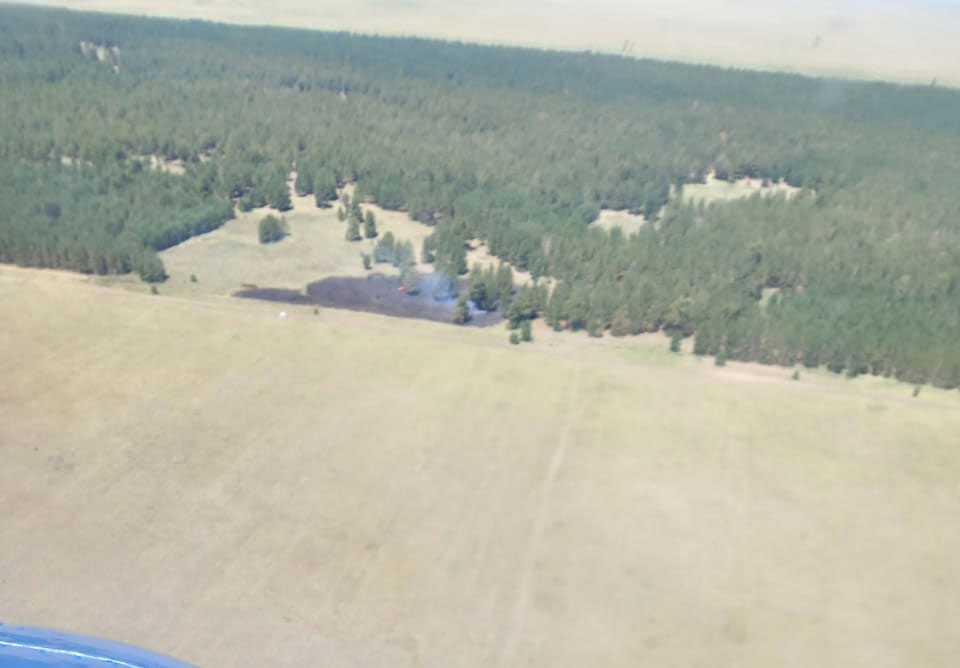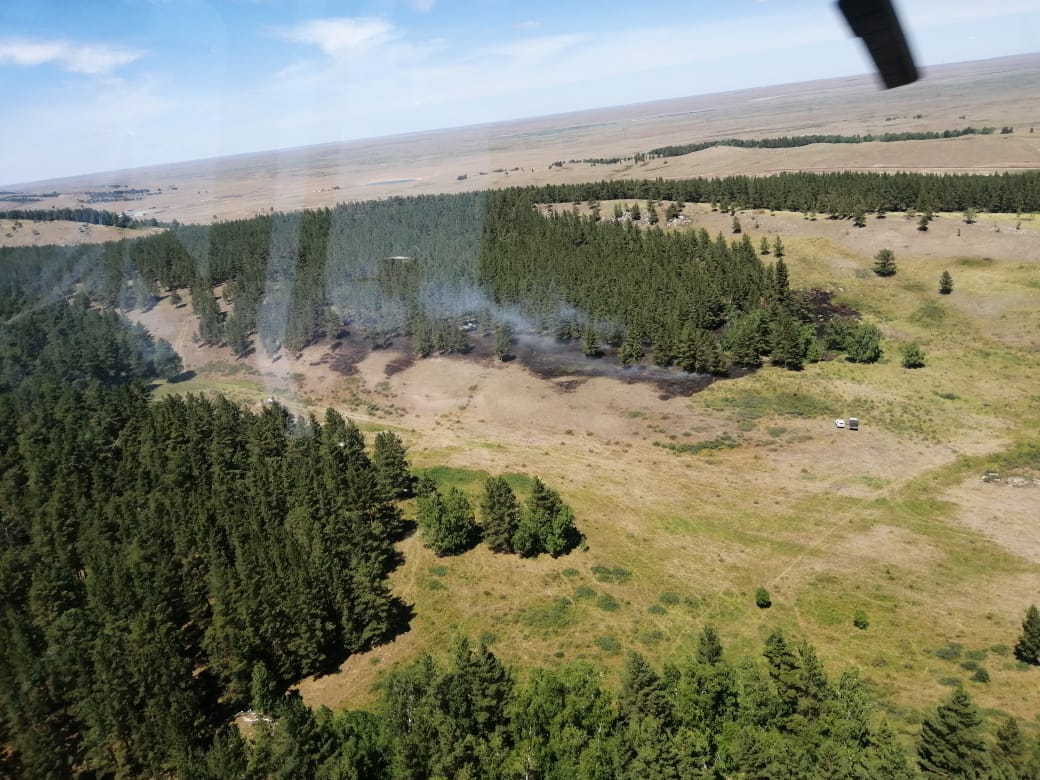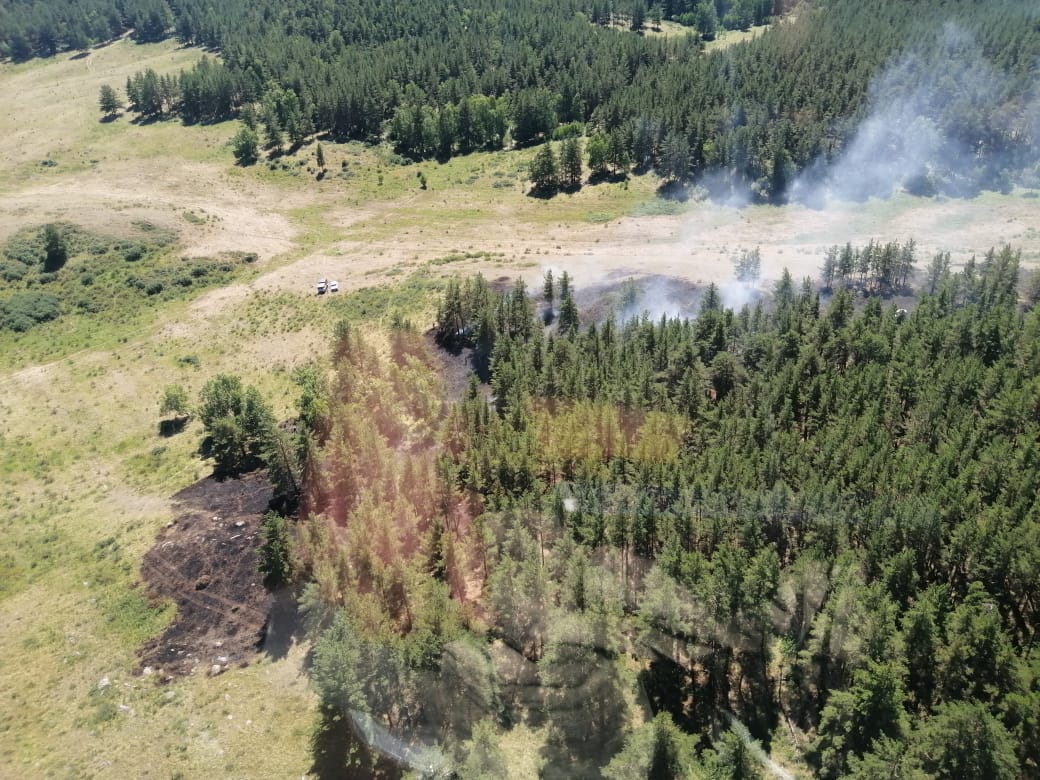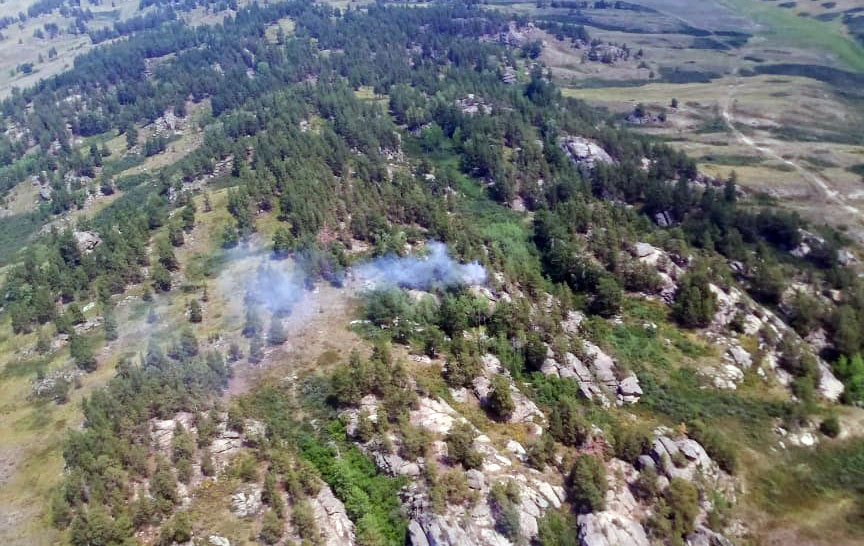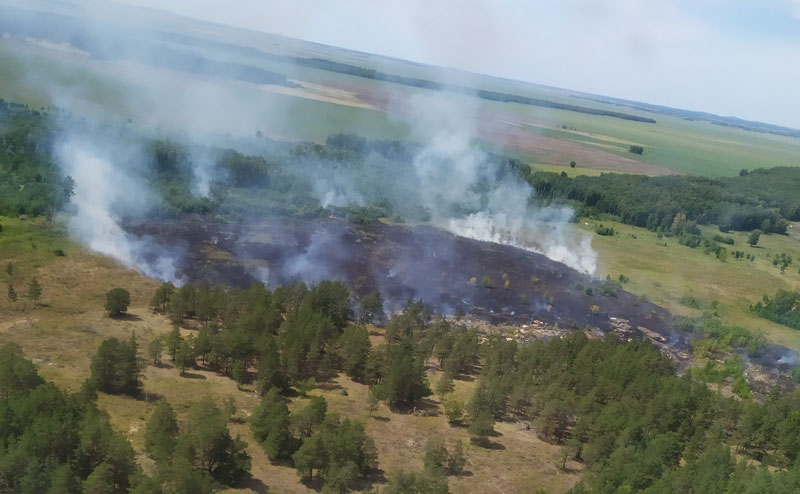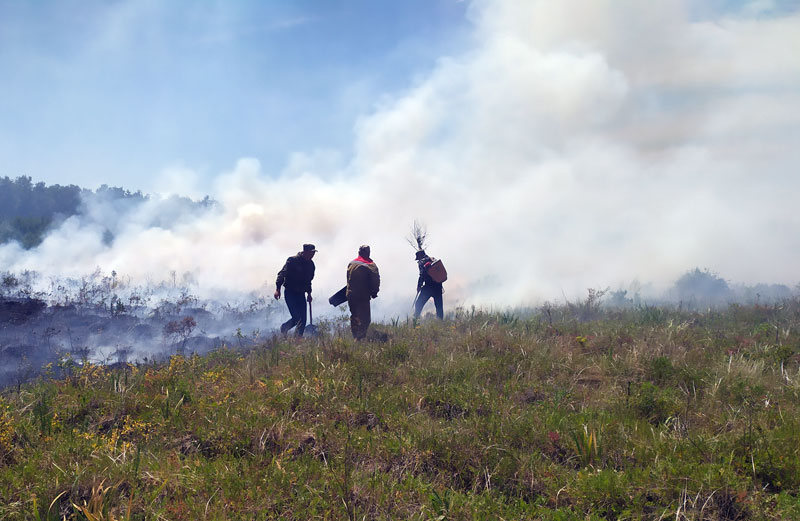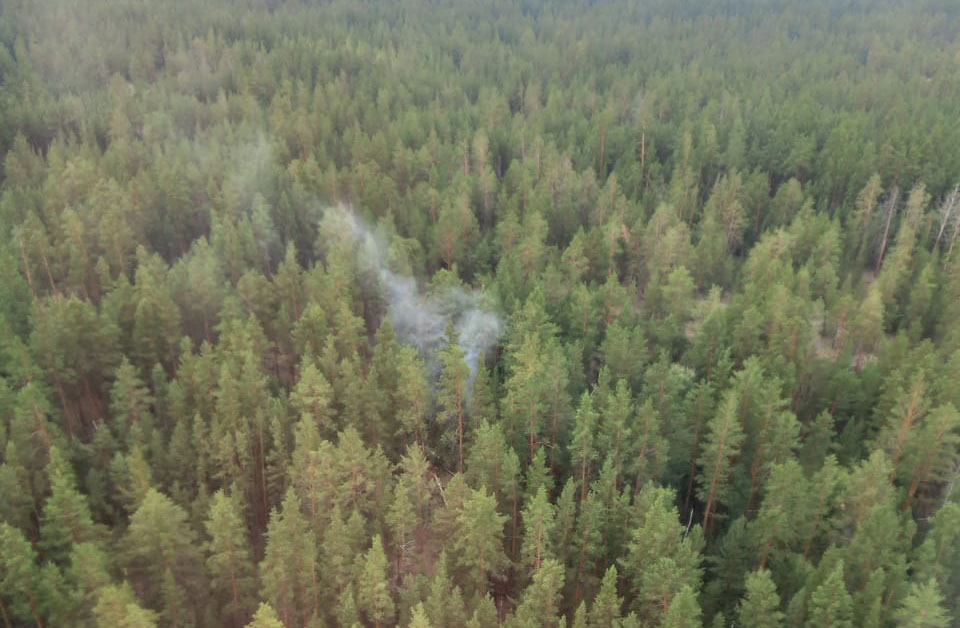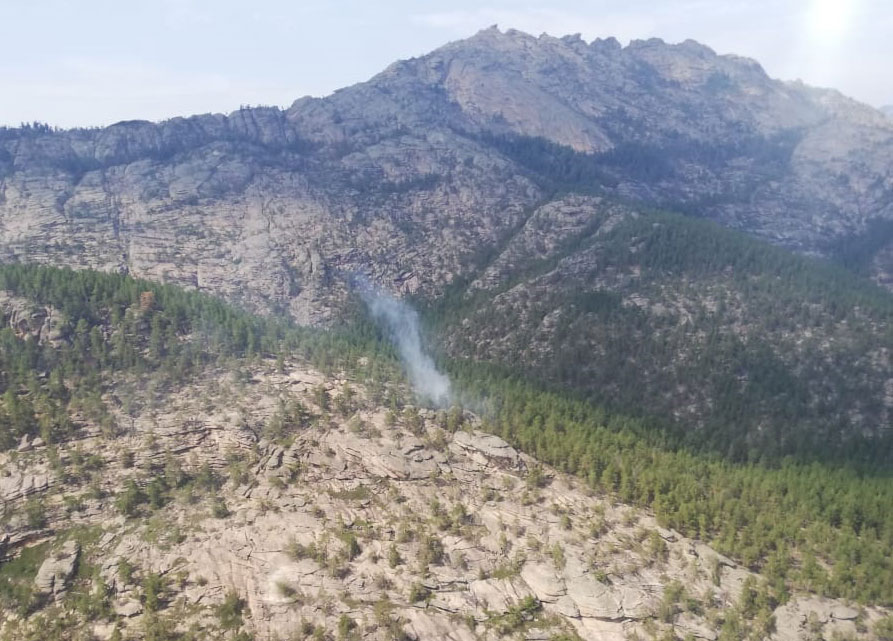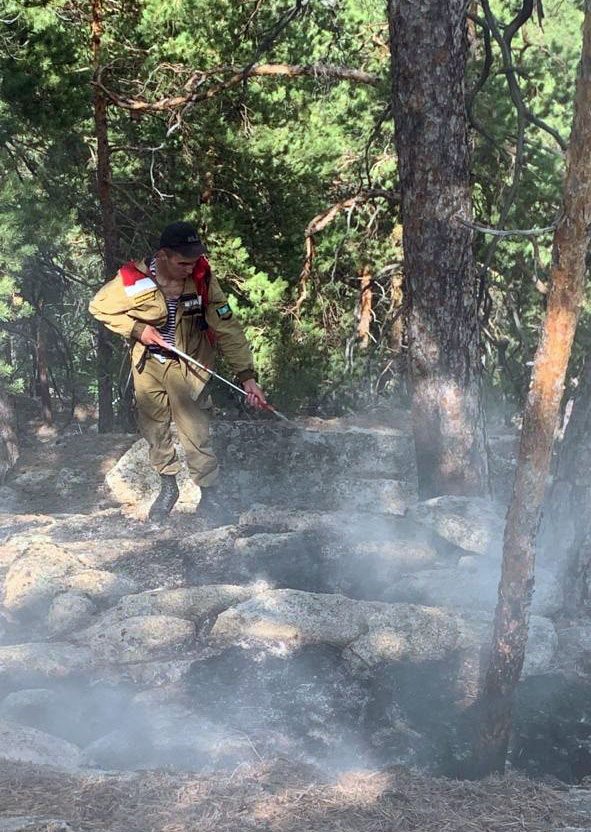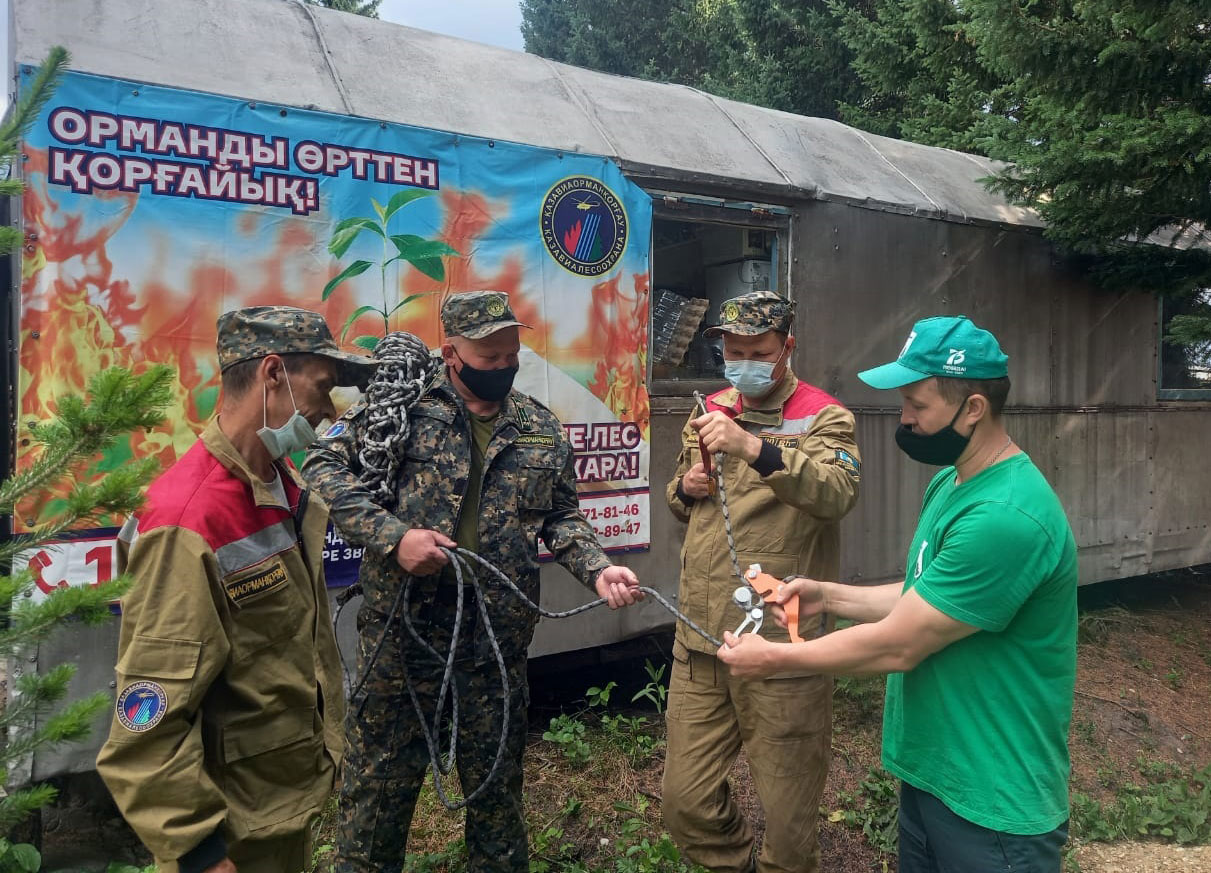UNDER THE BLUE SKY
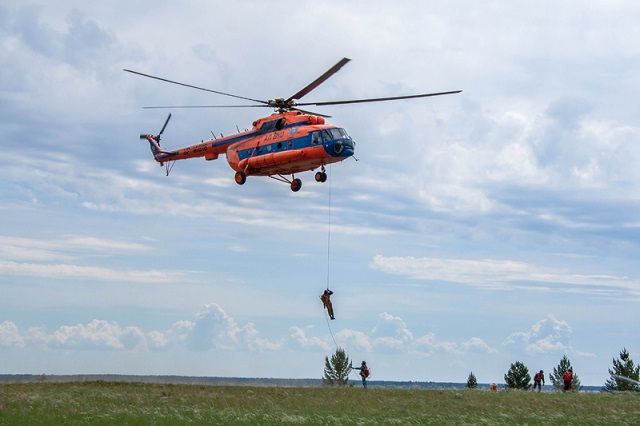
ON JULY 7, 1931, A SMALL BIPLANE PO-2 TOOK OFF FROM THE AIRFIELD OF THE SMALL TOWN OF UREN IN THE NIZHNY NOVGOROD REGION FOR THE FIRST TIME IN THE HISTORY OF THE USSR SPECIFICALLY FOR AIR PATROL OF FORESTS. THE DURATION OF THAT FIRST FLIGHT WAS 1 HOUR 33 MINUTES. THIS DATE IS CONSIDERED TO BE THE BIRTHDAY OF AVIALESOOKHRANA.
It is customary to celebrate it in Kazakhstan. After all, the total land area of the forest fund in our country is 30 million hectares and occupies 11% of the territory of the republic. And all this considerable economy requires close attention.
YOUR SHIRT IS CLOSER TO YOUR BODY
In Kazakhstan, full-scale forest protection with the help of aviation appeared only in 1948. The greatest attention was paid to the creation of specialized units in its eastern part, where 44% of the operational reserve of wood of the republic and about 70% of its industrial component are concentrated. Approximately 30% of the territory of East Kazakhstan Region is covered with forests, represented by such species as fir, larch, spruce, cedar, aspen and birch. The area of specially protected natural territories is 1544.76 thousand hectares.
I must say that at the beginning of the formation of a unique state-owned enterprise, its financing left much to be desired. In 1962, the cost of aviation protection of forests amounted to only 52 thousand rubles. Only two years later, when air patrol covered an area of 4.8 million hectares, it increased significantly.
In the early seventies, forest protection through aviation was carried out mainly in the taiga massifs as the most valuable and fire-hazardous already by the forces of 11 aviation departments with the help of eight Mi-1 helicopters, one Mi-2 and two An-2 aircraft (leased from the West Siberian air base (Novosibirsk) on an area of 5.2 million square meters).
However, the Kazakhstan air division of the West Siberian air Base, created in 1972, did not fully meet the new requirements and tasks. Therefore, six years later, it was decided to create a separate specialized service – the Kazakhstan Aviation Forest Protection Base ("Kazavialesookhrana"), which in a fairly short time was able to reach a high professional level. The organization of the republic's air fire service, its mobility and ability to fight the fire element in the most difficult conditions have been repeatedly demonstrated during the periods of mass outbreaks of forest fires in the Almaty and Taldykorgan regions. Especially in the Rudny Altai during the extinguishing of the largest taiga fire in the protected area.
But there is nothing eternal under the moon. Due to the crisis economy associated with the collapse of the Soviet Union, the financing of forest aviation works has been reduced by eight times in recent years. At first, this led to a reduction in the total flight hours from 7000-8000 to 300-2000 hours per year. Only since 2003 and to the present time, the raids have been stable and reach up to 9,000 hours per year.
The operation of the Mi-2, Mi-8, and Mi-171 helicopters available in the airlines continues. Kazavialesookhrana is gradually switching to the use of other types of aircraft of foreign production.
Unfortunately, the development of a vital division is somewhat hindered by new economic realities. During the period of total privatization, most of the aircraft equipment was in the hands of private owners, for whom participation in the protection of forest wealth is regulated by the basic law of business: profitable – unprofitable. This approach, in particular, had a negative impact on the recent fire in the village near Ridder, when, contrary to the agreement, two additional helicopters could not fly from neighboring regions.
I'M GOING TO THE STORM!
A huge region in the east of Kazakhstan with a territory equal to the average European country is reasonably considered one of the most dangerous in our republic. Thick, ancient cedars, candles of larch and fir trees that have risen to the sky, which have chosen mountain slopes and plateaus open to the mercilessly scorching sun, become easy prey to the fiery element. Fires here occur with frightening regularity. This summer is especially replete with storm warnings of the regional emergency service.
The relict ribbon forest, stretching along the Irtysh River, was subjected to fire attacks 43 times last month. The resulting fires were eliminated in a matter of hours. It is quite likely that even at these very minutes, a message about a powerful thunderstorm front that has arisen presumably in one of the most inaccessible places of the region is being sent to the alarm panel of Aviahrana. And this message for rescuers is a kind of SOS signal, when there is not a single minute to lose.
Paratroopers rush with all their might after the thunderstorm, identifying and extinguishing the fires that have arisen after lightning strikes. The engine roars with effort, spinning the blades of rotorcraft, and now a panorama has already opened with the roofs of houses, the meanders of country roads, the blue ribbons of rivers lost in the green haze of forests.
WITH THE ELEMENTS-ON YOU
Somewhere in the early seventies of the last century, on the instructions of a news editorial office, I happened to visit the Markakol Lake area on the Chabansky Dzhailau. The weather in the highlands is unstable. The sky began to tighten with clouds. It got dark. It was clearly heading for a thunderstorm. And so it happened. Thunder rumbled, lightning flashed. One of them hit the top of the dried leaves. A flame broke out, which spread to the neighboring trees, and then a strong riding wind drove him towards a nearby village.
It made me uneasy to see how this fiery monster, which has broken free, turns everything that gets in its way into ashes in a matter of minutes. It seemed that a little more and only lonely chimneys would remain in place of dwellings. But providence intervened. The wind suddenly changed direction, and soon rescuers arrived. How accurate, efficient and professional were the actions of the firefighters who tamed the raging elements.
Having uncovered the movie camera, I began to shoot what was happening. Suddenly, my attention was attracted by a hovering helicopter, behind the blister of which the muzzle of a mustachioed cat loomed. Most likely, this is one of the victims of the fire, taken on board by a compassionate crew. In business! I switched the movie camera to the four-legged balloonist. Alas and ah! Unfortunately, due to a technical failure, it was not possible to use these unique frames, which I still regret.
It is impossible to calculate the economic losses that fires cause to the economy every year. And how many human lives are taken! Those who have chosen to protect the forest and its inhabitants from fire and other misfortunes are worthy of all praise, although it also happens that in an extreme situation they have to protect both our homes and ourselves from fire.
I want them, the air guards of the forest, to need nothing and be protected socially. So that the authorities remember about them not only during natural disasters.
By the way, large-scale cross-border fire-tactical exercises have just been held in East Kazakhstan with participation in the adjacent territories of the Republic of Kazakhstan and the Altai Territory of the Russian Federation. After all, fires, as you know, have no borders and know no mercy.
Anatoly LAPTEV
https://kzaif.kz/society/pod_nebom_golubym
